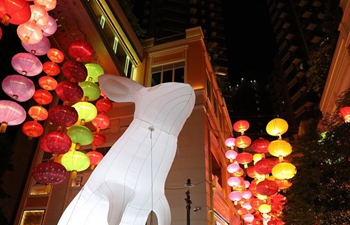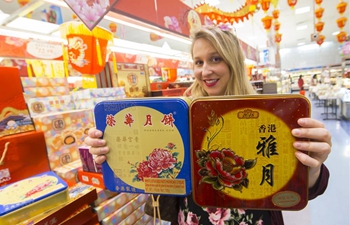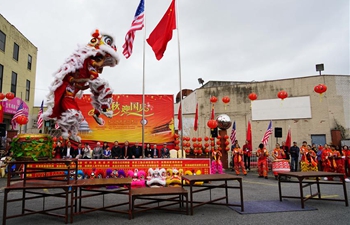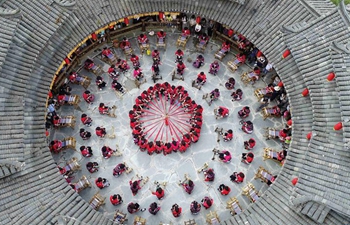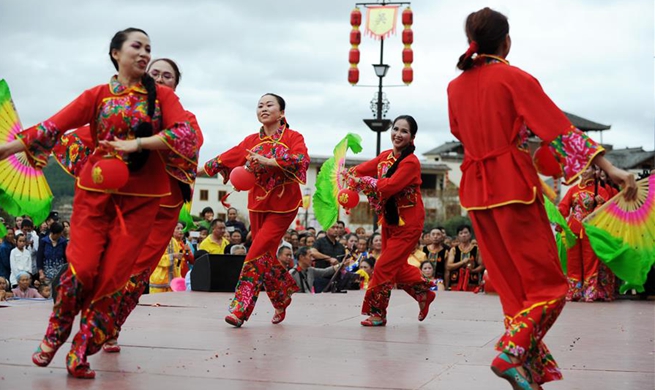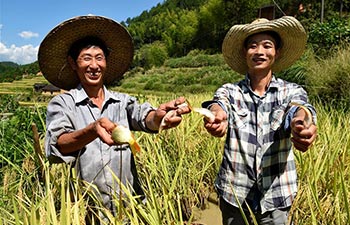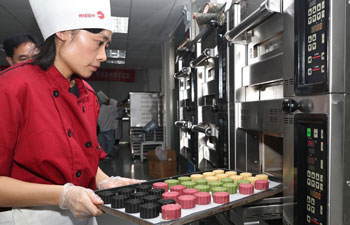by Alessandra Cardone
TURIN, Italy, Sept. 24 (Xinhua) -- A new European Union (EU) project to preserve gastronomic heritage was launched at the Terra Madre Salone del Gusto Expo running here on Sept. 20-24.
The project "Slow Food-Central Europe (CE): Culture, Heritage, and Food" will involve five cities in five countries: Venice in Italy, Dubrovnik in Croatia, Krakow in Poland, Kecskemet in Hungary, and Brno in the Czech Republic.
Led by Slow Food -- a global movement promoting the right of access to good, healthy, and fair food at global level -- it would see each of the cities launching a pilot initiative in public spaces.
Such initiatives would imply multiple actions, "within the Slow Food philosophy that aims at enhancing specific characteristics of the local gastronomy, its roots, and cultural heritage," the Salone del Gusto organizers said in a statement.
For example, Venice would launch a "Venice APPetite" project to guide local people, students, and tourists to the discovery of the most typical Venetian cuisine.
The initiative would include two new gastronomic paths in the small islands of Sant'Erasmo and Pellestrina in the lagoon, and 10 information boards on local products to be set up across the city's most central areas.
A mobile app would also be launched to promote virtual thematic itineraries.
In the Croatian Dubrovnik, a multimedia exhibition will be devoted to the local gastronomic and cultural heritage.
The Croatian initiative -- called "City Feeders" -- would include video interviews with selected local farmers still following traditional production practices, and analyses by local experts of written documents and popular works on the local gastro-cultural heritage.
The project in the Czech Republic would focus on specifically promoting the gastronomy of the South Moravia region among school children and teachers of the regional capital Brno, along with the broad public.
Among the actions here, a Slow Food taste educational kit (called "To the Origins of Taste") would be provided to teachers, while practical workshops will bring together school children and local farmers in common cooking activities of seasonal foods.
A Children's Farmers' Market would also be organized in Brno in October 2019, with students managing the stalls and selling their own grown and baked products.
Similar actions, yet adjusted to the respective local gastronomy traditions, will be launched in Poland's Krakow and Hungary's Kecskemet.
Financed through the Interreg Central Europe -- the EU funding program encouraging cooperation among central European regions -- the Slow Food-CE project would run until May 2020.
This year's Terra Madre Salone del Gusto event drew in the northwest city of Turin some 5,000 delegates from 140 countries and regions, over 800 Italian and foreign exhibitors, and 500 food communities.
It is the world's largest exhibition devoted to local food traditions and cultures, and to the exchange among small-scale producers.
The Slow Food association was founded in Italy's Piedmont region by Carlo Petrini in 1986 to defend the country's regional gastronomic traditions, and overall promote a "slow pace" life model.
It grew into a global movement that today involves local farmers, producers, agronomists, and academics in some 160 countries and regions.
